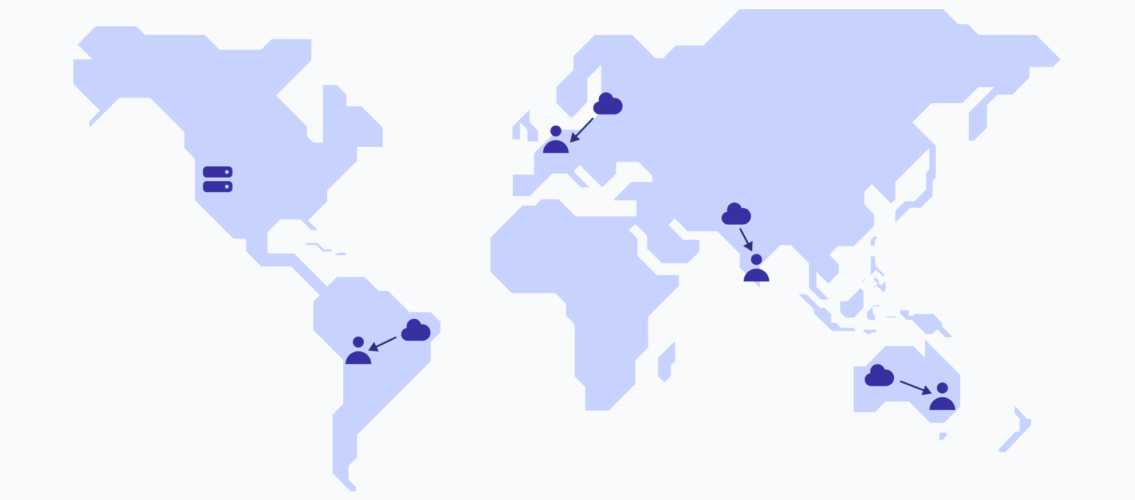This week: WP Tavern without Tadlock, FlyingProxy service, WordPress market share, Remkus de Vries and his agency, and much more.

Robert Jacobi ran 3.5% of the internet and today as Director, WordPress, he leads the WordPress business unit at Cloudways, a multi-cloud managed application as a service platform that lets users choose where they want their website to be hosted from a variety of options, including Amazon Web Services, Google Cloud, DigitalOcean, Vultr, and Linode.
The WordPress ecosystem is financially immense, and the business of WordPress (inside and outside the community) is something that folks should be investing time in understanding. This week we’ve had a bunch of sturm und drang about why WordPress lost market share. Hint, everyone is right but for the wrong reasons. Next, Automattic is the $7 billion example of success with WordPress but global accounting will make you scratch your head. Can you spare €200 million? Business news sites really have a hard time talking about WordPress – I can’t wait to migrate to WordPress.org. Last but not least it’s critical to see what is going on outside of our ecosystem: new ideas, new challenges, and new opportunities abound! It doesn’t get geekier than a white paper about website rendering.
I know, I’m supposed to pick one and only one link per topic but let’s shake things up a bit, just like Joost de Valk did this with the hot button topic WordPress’ market share is shrinking: “If WordPress is shrinking, something else must be growing, this is, after all, a zero sum game. The very clear winners at the moment are Wix and Squarespace. Some other notable growers are Adobe, which is more on the enterprise side, and Webflow.”
Did you know the number two CMS is actually none of the content management systems that we monitor (33.1%)? So we know that this is not a zero sum game. We don’t have all the data. In fact there may be systems that are not not even monitorable. We don’t know the sum. Think on that while you read more of the reactions at Post Status, Ellipsis, WP Review, and WP Tavern.
Why did I say everyone is wrong about the market share loss? Well as mentioned above we don’t actually know the size of the market and it keeps changing. We can get a relative idea but I think there is a good sized error rate that we don’t have in mind. More importantly WordPress is much more like Windows 95 than iOS, we have to deal with the Gateways, Dells, and Sonys of the WordPress “operating system” – for better or worse – Windows still exists and I would say after some growing pains has become more dominant in different areas. The entire ecosystem will evolve.
I remember watching double dutch and being amazed by the precision and speed, I can barely skip rope by myself, not sure if I can call this a Double Irish (looks like there are new flavors) but this is how business gets done.
Why is this always so hard? I know for a fact that you can’t host yourself at WordPress.org, TechRadar really confused the average read with
Last but not least, let’s really geek out about rendering web pages, yes rendering web pages. The idea of having a white paper on this is pretty brilliant, Theoretical foundations for server-side rendering and static-rendering: “We consider any reduction of the volume of computation needed to operate a website or web application an obligation to achieve a fast, feature-rich and energy-efficient Internet.”

Justin Tadlock, in a surprise move, has just retired from WP Tavern. He announced, however, that he would stick around the world of WordPress.

Gijo Varghese, the creator of many optimization plugins, has just launched FlyingProxy service, which is automatically integrated with many CloudFlare services and makes your website faster.
Next generation cloud built for WordPress
In his latest report, Joost De Valk notes that WordPress’ market share has reduced. I wouldn’t consider it alarming as the W3Techs methodology itself is not infallible and the results are prone to fluctuations.
GutenbergHub is home to many practical guides to creating various Gutenberg blocks. This time a scrollable gallery is on the menu.
Mike Codes presents a video on how to migrate WordPress to the cloud as serverless.
Eric Karkovack wonders how plugins should function when their license expires, and why blocking is not the WordPress way.
Alex Denning went through Joost’s entry on shrinking market share and found that the results may depend on the methodology used.
Andrew Kepson explains how to create additional post types with Atlas Content Modeler and how to use them in headless WordPress.
Cristina Holt breaks down the differences between the Agile and the Waterfall methodologies, and which will suit your team better.
Ross Wintle describes why coding for fun is so important.
Michelle Frechette explains how to become a good organizer, participant, or speaker at a conference.
Tom Stinson describes the importance of diversity and equality in distributed teams. The article demonstrates how they do it at XWP.
Remkus de Vries on Do The Woo opens up on how his career has just come full circle and why he is reactivating his agency.
Mike Davey on the Delicious Brains compared the six most popular backup plugins.
Nida Tools have published ten tips on how to speed up a WP-based website.
